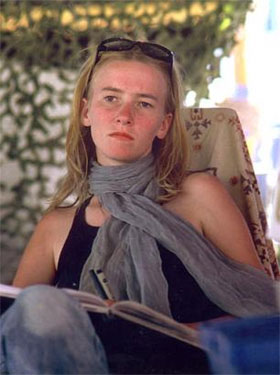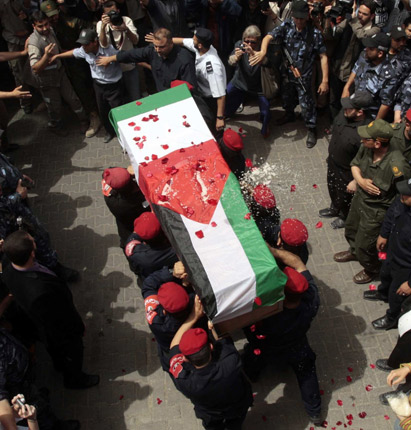Tag: Rafah
-
Colonel Pinhas (Pinky) Zuaretz to testify in Corrie trial Wed, April 27th
20 April 2011 | Rachel Corrie Foundation for Peace and Justice In a breaking development, an Israeli court has granted the State’s request to move the testimony of former Brigade Commander Pinhas (Pinky) Zuaretz to next week, Wednesday, April 27, nearly one month prior to his originally scheduled appearance. A 5-page affidavit for the witness…
-
Thousands of Gazans participate in slain Italian activist’s funeral
19 April 2011 | Palestine News Network On Monday, politicians, NGO workers, and activists took part in the funeral of Vittorio Arrigoni who was killed last Friday by a Salafist group in Gaza. Palestinian police officers carried Arrigoni’s coffin and marched in the funeral. Those in attendance carried his picture and, in reference to his…
-
Gaza under attack: death and destruction in Rafah
10 April 2011 | International Solidarity Movement, Gaza On the afternoon of Thursday April 7th, Israeli forces escalated their attacks on the Gaza Strip. The murderous offensive has killed 18 people so far, the majority of them being civilians. Among the massacred are a mother, her daughter, two children, two elderly men and four members…


